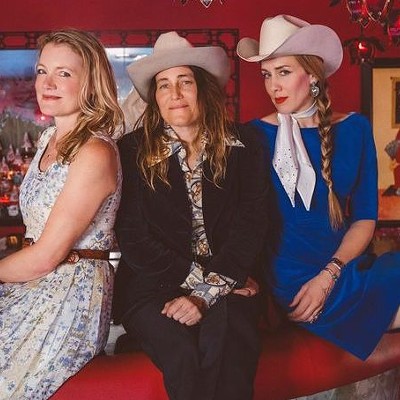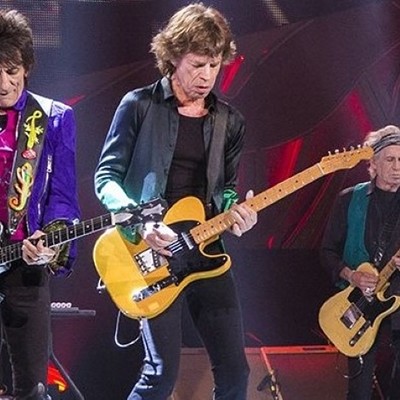Dome Shadows On Buffalo Speedway not far from the Astrodome, Dome Shadows was "the" spot for swinging white clientele beginning in December 1963, only months before the Beatles appeared for the first time on Ed Sullivan's show. The club featured a large house band (most notably the Jokers) and was the see-and-be-seen magnet for the young, smart, moneyed crowd.
Judge Roy Hofheinz sued the club for $1 million over the use of "Dome," which of course only made it more popular. By 1970, longtime Houston radio personality Paul Berlin was running the club, which was eventually heavily damaged by fire and closed, but not before hosting one of Ramones' first Houston shows in the late '70s. WILLIAM MICHAEL SMITH
Goat's Head Soup In early 1994, I was trying to develop a taste for Fugazi-type music that never really took and decided I just had to see Surgery at Goat's Head Soup one weekend while home from UT-Austin. An oversized house right as the Westheimer curve widens into Montrose proper, the venue booked heavier alt-punk bands -- Emo's runoff, more or less -- while it was open, which wasn't long. (Sugery wasn't bad, though.) It burned down in June 1994; one of the owners was arrested and charged with felony arson a few weeks later. CHRIS GRAY
The Island Known variously as Rock Island, Paradise Island and just plain the Island, this former Mexican restaurant on Main Street was Ground Zero for Houston's punk rock scene between 1978 and 1983. In addition to providing a stage for local upstarts such as the Hates, Mydolls, Really Red and the Judy's, the Island also hosted legends from the Dead Kennedys, Black Flag and X to like-minded Texas groups Butthole Surfers, Big Boys and MDC. The atmosphere was rank and the threat of violence and police harassment lingered over many gigs, but the DIY scenester spirit of the place made it fertile ground for no-rules rock experimentalism. NATHAN SMITH
The Jester Adjacent to the huge apartment complexes of "Sin Alley" along Mid Lane between Westheimer and Richmond, The Jester was another Ground Zero for the Texas singer-songwriter movement and the original musical home of Townes van Zandt, who reportedly was often drunk and not very good at that point in his career. Guy Clark, Jerry Jeff Walker and others also cut their teeth here. Management also had the tolerance and foresight to invite the great black folk blues players like Lightnin' Hopkins and Mance Lipscomb to perform there. A branch bank sits on the location today. WILLIAM MICHAEL SMITH
Jimmy Menutis' Lounge A converted movie theater that became the center of a once bustling Telephone Road scene, Jimmy Menutis' Lounge was as close to real nightclub as it got in the early '60s. How cool was it? Roy Head recalls opening for Chuck Berry there and, according to Head, "everybody who was anybody played there." The list of national headliners who played the club is staggering: Louis Armstrong, Sam Cooke, Little Richard, Bo Diddley is only the tip of the list. The turbulent '60s and the change in musical styles caused Menutis to close the club. WILLIAM MICHAEL SMITH
La Bastille Some have called this basement room off Market Square Houston's last true jazz club. In its nearly two decades, it hosted a pantheon of the genre's giants (Miles Davis, Bill Evans, McCoy Tyner, Sarah Vaughan, Stan Getz), sometimes in multiple-night stands. La Bastille eventually widened its booking to accommodate rock acts like Carlos Santana before finally closing in 1979. CHRIS GRAY
Laveau's Laveau's namesake, infamous New Orleans voodoo queen Marie Laveau, makes Internet-excavating much information about the lower Montrose dive a little tricky; according to invaluable Houston flyer archive Ozone City Outrage, though, Hates shows were typical. Laveau's also appears to have been well-known for its Chinese New Year parties. CHRIS GRAY
List continues on the next page.






